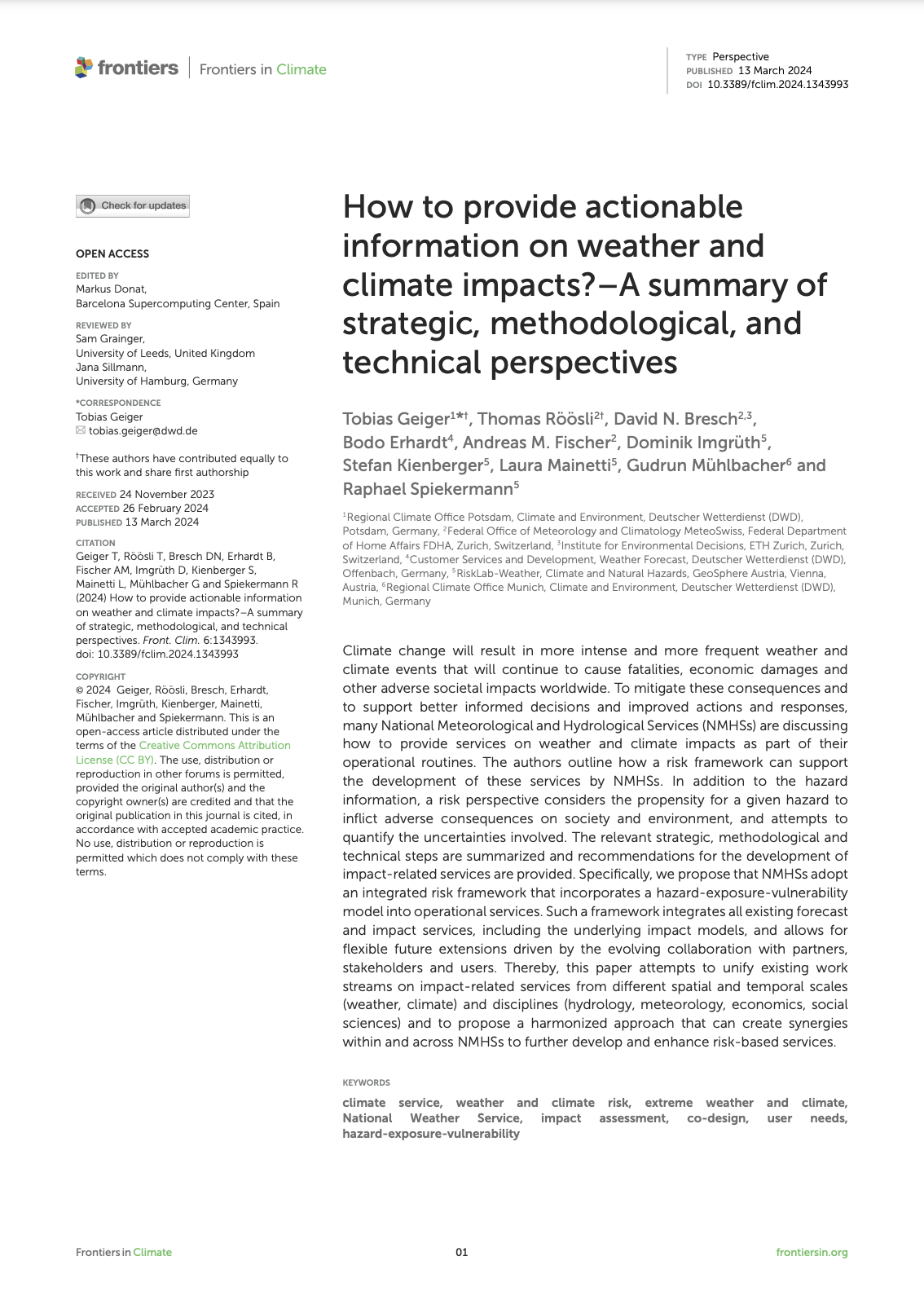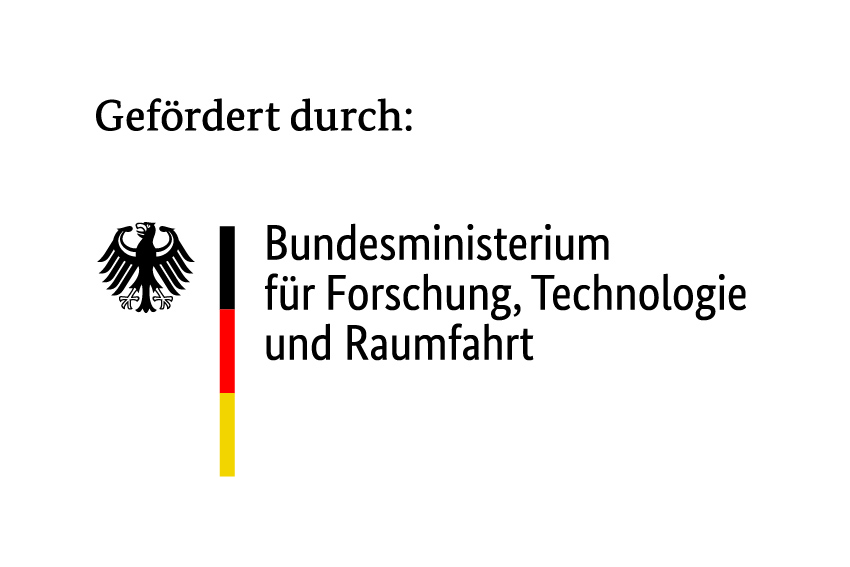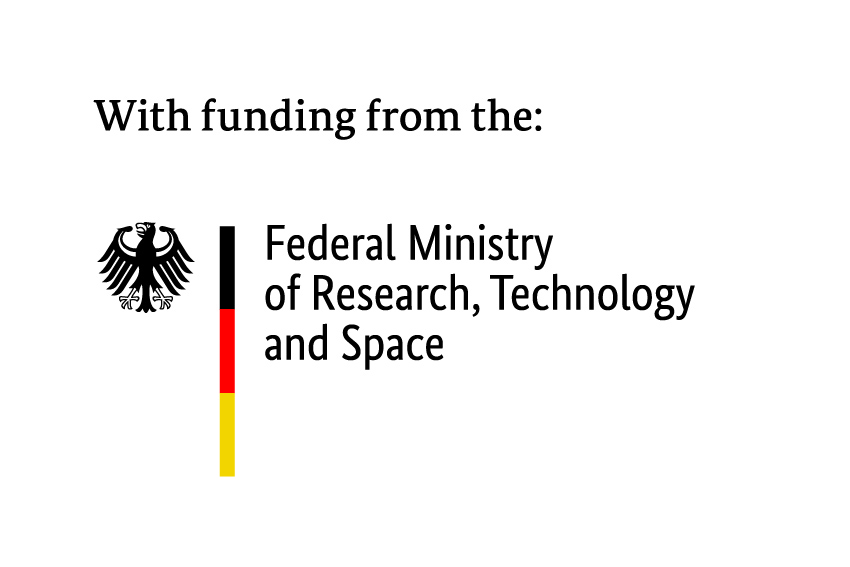Finanzielle Resilienz von Konsumenten gegenüber dem Klimawandel
CONFILIENCE – Consumer Financial Resilience to Climate Change
Teilprojekt 1: Impact-orientierte Wetter- und Klimaservices zur Abschätzung zukünftiger finanzieller Risiken

Teilprojekt 2: Kausale Auswirkungen wetterbedingter Veränderungen der Lohneinkommen auf Verbraucherinsolvenzen
Das zweite Teilprojekt befasst sich mit den Auswirkungen zunehmender Wetterrisiken auf die Überschuldung bzw. Insolvenzen von Verbraucher:innen und die Rolle des regionalen Bankensektors in der Moderierung dieser finanziellen Risiken. Die Ergebnisse werden in „heat-maps“ zu klimabedingten Liquiditätsrisiken von Verbraucher:innen anschaulich zusammengefasst.

Publikationen von CONFILIENCE
CONFILIENCE I How to provide actionable information on weather and climate impacts? A summary of strategic, methodological, and technical perspectives

How to provide actionable information on weather and climate impacts? A summary of strategic, methodological, and technical perspectives
Climate change will result in more intense and more frequent weather and climate events that will continue to cause fatalities, economic damages and other adverse societal impacts worldwide. To mitigate these consequences and to support better informed decisions and improved actions and responses, many National Meteorological and Hydrological Services (NMHSs) are discussing how to provide services on weather and climate impacts as part of their operational routines. The authors outline how a risk framework can support the development of these services by NMHSs. In addition to the hazard information, a risk perspective considers the propensity for a given hazard to inflict adverse consequences on society and environment, and attempts to quantify the uncertainties involved. The relevant strategic, methodological and technical steps are summarized and recommendations for the development of impact-related services are provided. Specifically, we propose that NMHSs adopt an integrated risk framework that incorporates a hazard-exposure-vulnerability model into operational services. Such a framework integrates all existing forecast and impact services, including the underlying impact models, and allows for flexible future extensions driven by the evolving collaboration with partners, stakeholders and users. Thereby, this paper attempts to unify existing work streams on impact-related services from different spatial and temporal scales (weather, climate) and disciplines (hydrology, meteorology, economics, social sciences) and to propose a harmonized approach that can create synergies within and across NMHSs to further develop and enhance risk-based services.
- Veröffentlichungsdatum: 23.03.2024
- Autor:innen: Tobias Geiger, Thomas Röösli, David N. Bresch, Bodo Erhardt, Andreas M. Fischer, Dominik Imgrüth, Stefan Kienberger, Laura Mainetti, Gudrun Mühlbacher & Raphael Spiekermann
- Publikationsart: Paper
- Link zum PDF-Dokument
- Keywords: climate service, weather and climate risk, extreme weather and climate, National Weather Service, impact assessment, co-design, user needs, hazard-exposure-vulnerability



